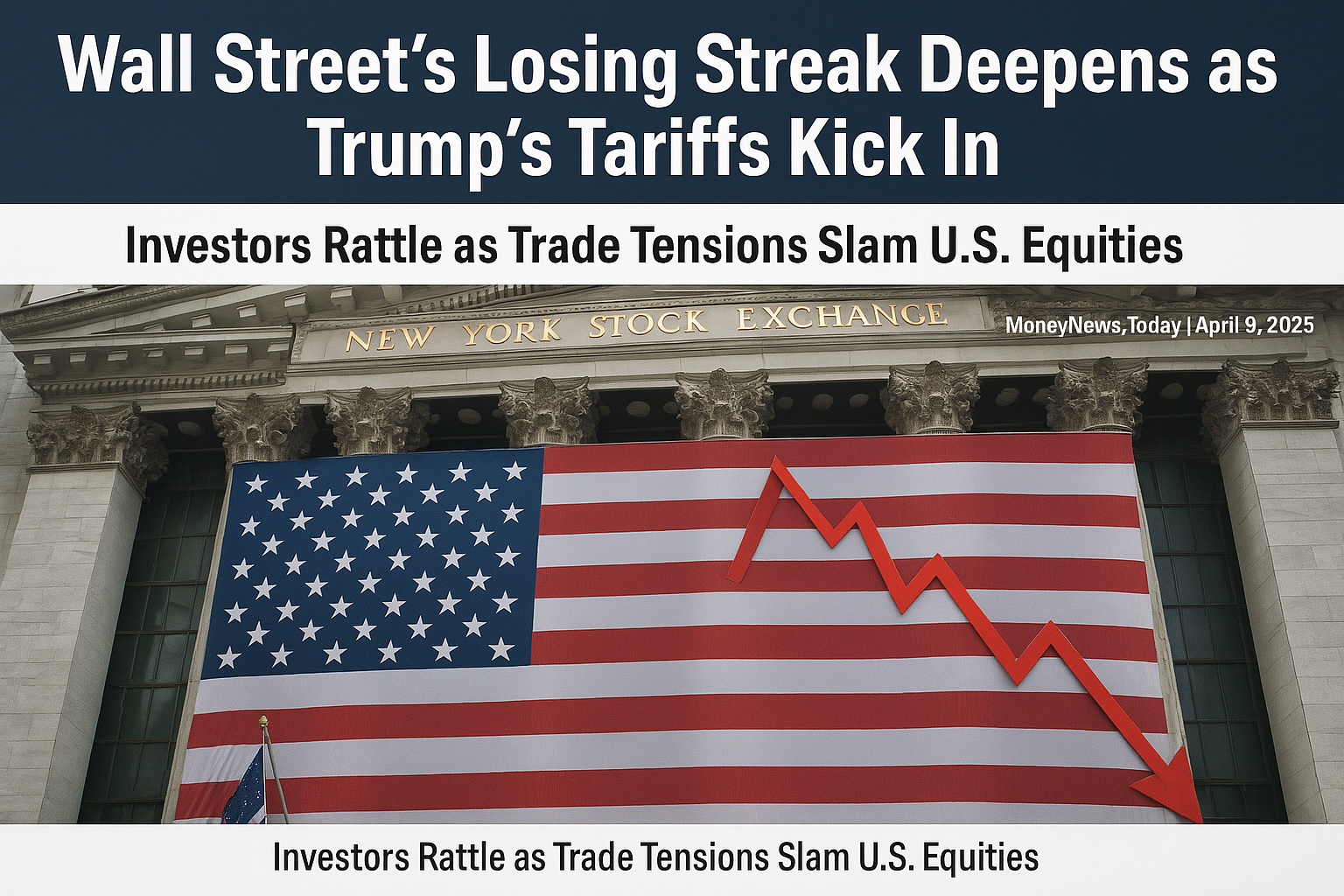Investors Rattle as Trade Tensions Slam U.S. Equities
Wall Street extended its losses this week as sweeping tariffs on Chinese imports—announced by former U.S. President Donald Trump—officially took effect. The market reaction was swift and severe, with major indices falling for the third consecutive session. The Dow Jones Industrial Average shed over 500 points intraday, while the S&P 500 and Nasdaq Composite both closed down more than 1.8%, marking one of the sharpest declines of the quarter.
The implementation of the 104% tariffs, primarily targeting Chinese electric vehicles and tech imports, has ignited widespread concern over the long-term impact on economic growth, supply chains, and corporate profitability. According to BNN Bloomberg, the market’s selloff reflects investor unease with rising input costs, slower earnings outlooks, and fears of retaliatory measures from Beijing.
A Growing Wall of Worry on Wall Street
Analysts warn that the renewed trade hostilities could act as a brake on both global and domestic economic momentum, which had only recently started to stabilize following a volatile post-pandemic recovery.
- Technology and industrial stocks—heavily reliant on global supply chains—were among the hardest hit. Apple, Caterpillar, and Intel all posted losses exceeding 3%.
- Consumer discretionary and retail sectors are also under pressure, as higher import costs threaten margins and dampen consumer spending.
- The Chicago Board Options Exchange Volatility Index (VIX) spiked to 19.7, its highest level in nearly three months, signaling rising fear in the market.
“We’re now entering a period of heightened uncertainty,” said a senior analyst at RBC Capital Markets. “Not only are we looking at direct cost increases, but also potential earnings revisions for companies heavily exposed to global trade.”
Why This Matters for Investors
This isn’t just a temporary pullback—it could signal the start of a prolonged phase of volatility. Investors should brace for more turbulence as the situation unfolds across multiple fronts: geopolitics, corporate earnings, and global supply networks.
In addition, Treasury yields dropped modestly as investors sought safer assets, while gold prices ticked higher—classic signals of a market flight to safety.
Corporate leaders have already started voicing concern. In a letter to shareholders, the CEO of a major U.S. manufacturer noted that “input costs are expected to rise significantly, and contingency planning is now essential.”
Future Trends to Watch
1. Earnings Season Response – With Q2 earnings season approaching, watch for forward guidance changes, especially from multinationals.
2. Retaliation from China – Any counter-tariffs or regulatory measures from Beijing could intensify volatility.
3. Fed Positioning – The Federal Reserve could face a dilemma if tariffs reignite inflation concerns while markets sink.
4. Safe Haven Flows – Increased attention toward defensive assets, gold, and low-volatility ETFs may drive portfolio reallocations.
Key Investment Insight
Given the uncertain outlook, now is a prudent time for investors to:
- Reassess risk exposure, particularly in sectors vulnerable to trade disruptions like tech, autos, and semiconductors.
- Explore defensive positioning, with increased allocations to utilities, healthcare, and dividend-paying stocks.
- Consider geographic diversification to offset U.S.-China trade friction risks.
ETFs such as Invesco Defensive Equity ETF (DEF) and Vanguard Dividend Appreciation ETF (VIG) may offer relative safety while still providing growth potential.
Stay Ahead with MoneyNews.Today
Trade wars don’t just affect governments—they reshape the investment landscape. For daily updates, data-driven analysis, and expert insights that help you make smarter market decisions, keep reading MoneyNews.Today. We’re your first source for financial news that matters.





